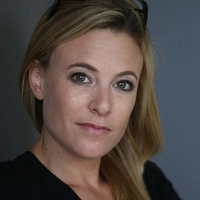
Rémi Monasson
CNRS & Ecole Normale Supérieure
A 2-week summer course hosted at University College London on analytical tools for probing neural networks and higher-level cognition.
Analytical Connectionism is a 2-week summer course on analytical tools, including methods from statistical physics and probability theory, for probing neural networks and higher-level cognition. The course brings together neuroscience, psychology and machine-learning communities, and introduces attendees to analytical methods for neural-network analysis and connectionist theories of higher-level cognition and psychology.
Connectionism, a key theoretical approach in psychology, uses neural-network models to simulate a wide range of phenomena, including perception, memory, decision-making, language, and cognitive control. However, most connectionist models remain, to a certain extent, black boxes, and we lack a mathematical understanding of their behaviors. Recent progress in theoretical neuroscience and machine learning has provided novel analytical tools that have advanced our mathematical understanding of deep neural networks, and have the potential to help make these “black boxes” more transparent.
During the School, teams of students work closely with faculty and postdoc mentors to develop research projects on topics related to analytical connectionism, presenting initial proposals during week one and interim results at the School’s conclusion. Participant projects from prior Schools have led to publications at NeurIPS.
Additionally, students are grouped based on their expertise and preferences and assigned to take notes for a specific lecturer. These notes are peer-reviewed and published in a special journal issue. Currently, lecture notes from the 2023 and 2024 editions of the school are being collected into a publication in the Proceedings of Machine Learning Research (PMLR). This initiative aims to make the content accessible to future participants and those who were unable to attend, while providing note-takers with the opportunity to contribute to a formal publication.
This course will introduce:
During the course, you will:
All dates are to be intended anywhere on earth time (AoE).
Applications to participate in the 2025 School on Analytical Connectionism are now closed.
This course is appropriate for graduate students, postdoctoral fellows and early-career faculty in a number of fields, including psychology, neuroscience, physics, computer science, and mathematics. Attendees are expected to have a strong background in one of these disciplines and to have made some effort to introduce themselves to a complementary discipline.
The course is limited to 40 attendees, who will be chosen to balance the representation of different fields. In circumstances where all other things are equal, priority will be given to applicants from underrepresented groups in STEM fields, using positive action under the UK Equality Act 2010 where appropriate.
There is a course fee of 600 GBP. Attendees are expected to cover their own travel, accommodation and other subsistence expenses. Lunch and coffee/tea breaks will be provided on course days, and there will be one course dinner.
Cancellation policy:
Financial assistance via travel grant may be available for successful applicants who find it difficult to take up a place for financial reasons. Applicants are asked to indicate in their application if they would like to be considered for financial aid. The amount of financial aid available will depend on the course funding from grants and sponsors.

CNRS & Ecole Normale Supérieure

University of Wisconsin-Madison

UCL & MIT
This year, we are thrilled to have lecturers with expertise in the following research areas:
These components will be delivered as a set of core lectures in the first week, followed by a set of topic lectures in the second week.
This summer course is made possible by the generous support of the Gatsby Computational Neuroscience Unit (funded by the Gatsby Charitable Foundation), and the Sainsbury Wellcome Centre for Neural Circuits and Behaviour (funded by the Gatsby Charitable Foundation and the Wellcome Trust).